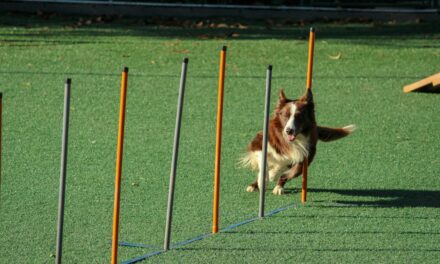A recent survey conducted by Petplan has found that 73% of UK dog owners believe older dogs can still be trained, although confidence in training abilities varies across the country.
The study, which surveyed over 1,000 dog owners, highlights the key behavioural challenges faced by dog owners, the most common training methods, and the obstacles that prevent effective training.
With many dog owners believing in their pets’ ability to learn new behaviours, the findings come at a time when dog behaviour issues have been on the rise. According to the PDSA Animal Wellbeing (PAW) Report 2023, 60% of veterinary professionals noticed an increase in behavioural problems among dogs between 2021 and 2023.
Lead Pulling and Barking Among Top Training Challenges
The survey reveals that lead pulling is the most common behavioural challenge UK dog owners face, with 32% of respondents identifying it as an issue. Excessive barking follows closely, reported by 26% of dog owners, while 24% noted that their dogs tend to jump on people. These results highlight the need for effective training techniques to address these common behavioural issues and ensure well-behaved pets.
Despite these challenges, only 5% of dog owners experiencing behavioural issues admitted to not training their dogs at all. This suggests that most dog owners are committed to improving their dogs’ behaviour, though some struggle with finding the time and resources to do so.
The survey also reveals the most commonly used training techniques among UK dog owners. Reward-based training was the preferred method for 57% of respondents, followed closely by positive reinforcement and verbal praise, used by 52%. Meanwhile, 39% of dog owners reported verbally telling their dogs off as part of their training approach. Other methods include classical conditioning (28%) and clicker training (16%).
While many dog owners are proactive in training their pets, a significant number face barriers that hinder their efforts. According to the survey, 27% of dog owners cite insufficient time as the main obstacle to effective training. A further 25% admitted to being inconsistent with their training routines, while 23% felt that training their dogs was too expensive and expressed a desire for expert guidance.
Confidence in Dog Training Varies Across the UK
While 83% of dog owners feel confident in their training abilities, confidence levels vary significantly across different regions and age groups. Edinburgh dog owners report the highest confidence, with 94% feeling equipped to train their dogs. In contrast, dog owners in Birmingham, Leeds, and Plymouth show lower confidence levels, with only 77% feeling self-assured in their training methods.
Petplan found that Millennials, particularly those aged 25-34, appear to be the most confident age group, with 85% expressing confidence in training their dogs. However, younger dog owners aged 16-24 report the lowest levels of confidence, with only 8% feeling fully capable of training their pets.
The survey highlights a growing demand for expert advice among dog owners who feel less confident in their training abilities. Nearly half (47%) of respondents who lacked confidence in training wanted expert guidance from a professional dog trainer, while 33% sought advice from a dog behaviourist.
Interestingly, 31% of dog owners expressed a preference for training their dogs independently, provided they had access to simple and clear resources. This sentiment was particularly strong among dog owners in Liverpool, where 71% said they would prefer to train their dogs themselves if they had the right tools.
Can You Teach an Old Dog New Tricks?
Despite the challenges and barriers to effective training, the belief that older dogs can learn new behaviours remains strong among UK dog owners. The survey shows that with the right training techniques and resources, it’s possible to train dogs of any age, emphasising that it’s never too late to start.
However, insufficient time is noted as a significant barrier for many dog owners. Nick Jones, dog behaviourist at Petplan, advises that consistency and patience are key to successfully training an older dog. He notes that too many changes too quickly can be stressful for older pets, making it important to use age-appropriate techniques to avoid overwhelming them.
Jones also highlights the benefits of reward-based training, particularly for addressing common issues such as lead pulling. “From addressing common challenges like lead pulling to utilising positive reinforcement techniques, effective training can significantly enhance the bond between owners and their dogs, which helps lead to content owners and happy dogs,” he said.
To assist dog owners with their training challenges, Petplan has developed a range of online resources that offer expert advice on effective training techniques. These resources aim to support dog owners in navigating the complexities of training, helping them to improve their dog’s behaviour and overall wellbeing.








